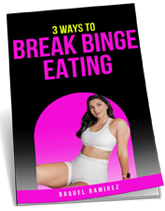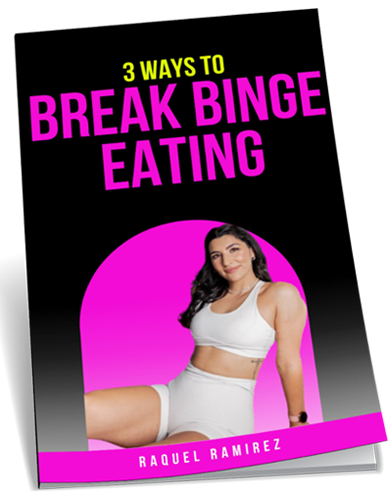Why does stress make you fat? Well, a bunch of miss-managed hormones, emotions running wild causes chaos! Stress IS part of life BUT chronic stress is part of the body fat equation.
It’s likely you eat fast, don’t chew properly, shoulder breather AND you probably have some form of constipation or IBS? The relationship between stress and your physical health and performance impacts your life more than you think! No more blaming your genetics. It’s time to take responsibility.
You just have to look at your most stressed out family member or work colleague. Constantly not okay with change, unhealthy eating behaviours and negative self talk. They are a hazard to themselves. I’m yet to see a healthy person, with low body fat that is highly stressed.
How stress response works – in basic terms.
First off, the body has a Central Nervous System (CNS) and a Peripheral Nervous System (PNS). A very fine-tuned network of chemical and electrical impulses that determine the best and most necessary response. Importantly, the food you eat, food you don’t eat, your environment, people you associate with, sexual health and function, sleep, including self-talk (cognitive ability) all play a role in your ability to perceive your stressful situation.
This is important to understand because the CNS and PNS systems work together with hormones to produce a chemical response that will determine if your resting and eating, or if you need to run from a lion!
Based on the stimulus, a voluntary (you have control over) response would be stress eating, yelling or acting aggressive. An involuntary (you cannot control) response would be heart rate rising, temperature increasing, sweating. The response will be based on what the stimulus is, the chemical messengers (hormones) do and your cognitive function (mental capacity). The different pathways the body determines how to respond to a stimulus (situational, or cognitive)
To summarise, based on what is happening around you, OR what you are doing or thinking (mental), your body will prepare to fight or flight or rest and digest.
Below is where you can gain the most insight from ‘how stress is making you fat’ especially if you didn’t catch any of the information above.
Why stress is making you fat – my mentor explaining this fantastically
PARASYMPATHETIC STATE
This is our REST and DIGEST system. The PNS system directs the blood flow to organs for digestion, increase intestinal activity, as-well as conserve energy by slowing the heart rate, lowering blood pressure and eliminating waste from our body.
Digestive organs include, stomach, intestines, pancreas, liver, gall bladder. The mouth plays a key role to the digestive process as it breaks down large food pieces into smaller pieces for the stomach to further break down.
What isn’t rest and digest: Eating and driving, eating and talking, eating and watching TV, stress eating before or after work. Why?
Because these are distractions to the resting and digesting process. The body is receiving external stimulation that it may need to respond to.
SYMPATHETIC STATE
Running? Fighting? Exercising? The sympathetic nervous system is at work! Here, both blood flow and blood glucose increase significantly in the muscle in order to support a physical response. BUT, you see times have changed. We no longer need to run from lions, or ward of another tribe. Instead we face more mental stresses.
Your job, finances, partner, people you work with, people you don’t work with, how someone said something to you, the drive to and from work are always going to be there and when you finally get a chance to unwind, the ‘breaking news’ or social media throws you off again. You’re an emotional mess and you often eat whatever you can find.
In this exhaustive, mentally stressful day, the body is in a sympathetic state. As discussed, blood flow is not in the organs to digest food. The blood sugar is spiked up and down all day and by eating your feelings on top of that INSULIN has to convert blood glucose to FAT.
Why? A survival mechanism, in case you need to run from lions or a tribe later, the body stores it for later use in all the places you hate.
3 TIPS TO BE MORE ‘PARASYMPATHETIC’
Slow down your eating
How fast do you eat your food? If you eat your food quickly you may experience second plate behaviour. You will find that the research isn’t exactly crystal clear on digestion time, but, we can agree we don’t usually eat then poop it out after 5 minutes, right? Digestion takes time and we should appreciate it more. Slowing down is meditative.
By bringing your awareness to the present moment you will be able to tap into mindfulness. Where you can allow yourself space to see, smell, taste even listen to the food you’re eating.
A great way to test transit time between meals is eat beetroot or corn to see how long the red colour or corn kernels take to come out!
Chew your food
MASTICATION is the chewing action. It breaks down food into smaller pieces for the digestive organs to pull nutrients out of it better.
Pro tip: Not only should the food pieces be of a mushy consistency but there shouldn’t be any lumpy or hard pieces to swallow.
Breathe deeply and often
Place your hands on your belly, breath in for 5 seconds, hold for 5 seconds and breath out for 5 seconds. If you struggle to do 5, do 3 seconds at each point. Breathing allows you to center yourself to the present moment. When you breath in you should feel your belly rise and then chest rise and when you breath out you should feel your belly and chest drop.
Do this for 1 minute, 2 minutes, maybe 10 breaths worth.
Find what works for you.






